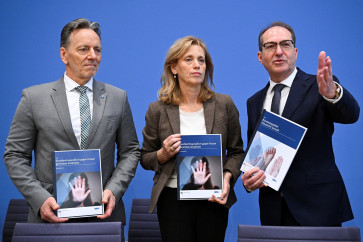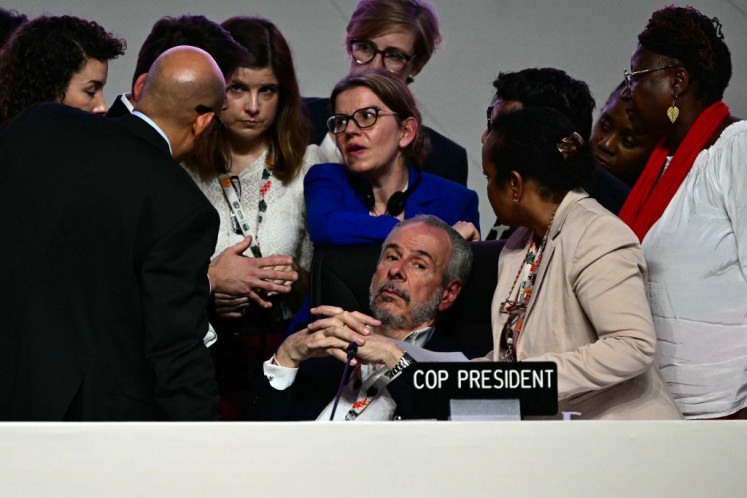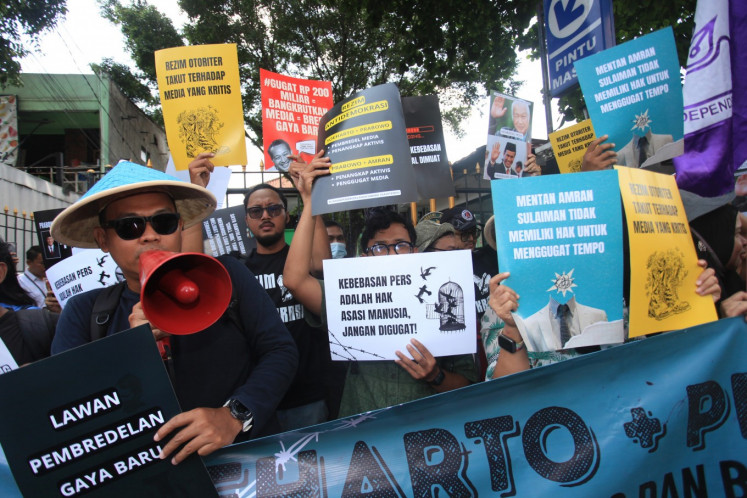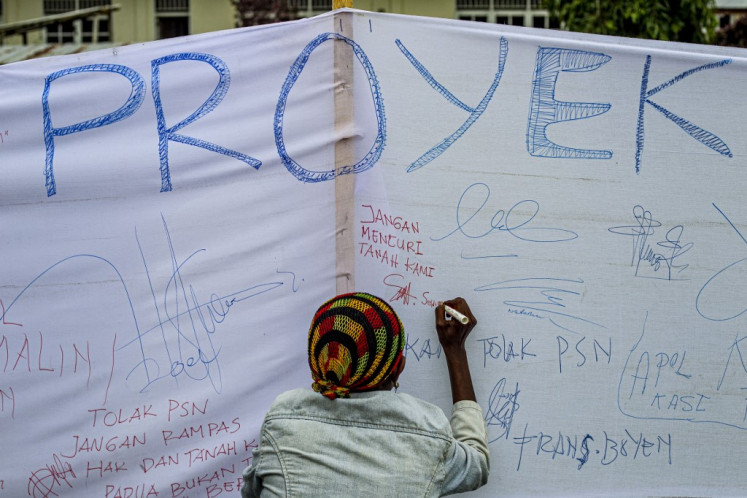Popular Reads
Top Results
Can't find what you're looking for?
View all search resultsPopular Reads
Top Results
Can't find what you're looking for?
View all search resultsJapan’s Abe touts ASEAN during brief Jakarta visit
Japanese Prime Minister Shinzo Abe finished his Asia tour with a truncated visit to Jakarta on Friday, expressing hopes for stronger ties in Southeast Asia and pledging to aid the flooded capital
Change text size
Gift Premium Articles
to Anyone
J
apanese Prime Minister Shinzo Abe finished his Asia tour with a truncated visit to Jakarta on Friday, expressing hopes for stronger ties in Southeast Asia and pledging to aid the flooded capital.
In a press conference following a bilateral meeting with President Susilo Bambang Yudhoyono at Merdeka Palace, the leaders agreed to boost cooperation in trade, investment, energy, infrastructure and tourism, among other areas.
“Since 2007, the two countries have had improved relations, not only in the economic sector, but also other fields, such as the environment, manpower, technology and youth,” Yudhoyono said. “Prime Minister Abe and I have also agreed to a commitment to bring Indonesia-Japan cooperation to a new level.”
Yudhoyono was referring to boosting the Indonesia-Japan Economic Partnership Agreement signed in 2007, when Abe first served as prime minister.
Meanwhile, Abe offered to aid relief efforts in flood-stricken Jakarta. “I hereby express my sympathy for the devastation and losses caused by the heavy downpour in Jakarta. Japan will help with anything that is needed to help restore the areas and properties that have been damaged by the flooding,” he said.
During their meeting on Friday, Yudhoyono and Abe also discussed global and regional issues, such as competing claims in the South China Sea made by China and four member nations of ASEAN, of which Indonesia is a founding nation. Both leaders agreed that territorial disputes must be settled through peaceful means and dialogues.
“All of the nations in Asia share similar hopes that this region can be stable and peaceful,” Yudhoyono said. ”If there is a dispute, whether it is in the South China Sea and the East China Sea or any other place in Asia, relevant parties must engage in peaceful resolution. There is no need to use the military.”
Indonesia was the last leg in Abe’s first international tour, which also included visits to Thailand and Vietnam, after his election. Observers pegged the tour as Tokyo’s attempt to counter the growing influence of Beijing in Southeast Asia.
Such observations were bolstered by Abe’s desire for stronger ties in Southeast Asia. “ASEAN will establish the ASEAN community in 2015. Japan’s good relationship with ASEAN will be more important to Japan to facilitate Japan’s interests.”
“China is positive for Japan in the economy sector. But China must also responsible in providing contribution for making a more peaceful and stable region,” Abe added.
Speaking separately in Jakarta, Japanese Foreign Ministry press secretary Yutaka Yokoi said that Asia had changed. “To maintain peace and stability in the region, Japan needs to make more of an effort, especially by enhancing its strategic ties with ASEAN.”
Abe shortened a planned two-day visit to Indonesia, returning to Japan after meeting Yudhoyono due to the Algerian hostage crisis involving several Japanese nationals.
Subsequently, the state banquet slated to be hosted by Yudhoyono for Abe at the State Palace on Friday afternoon was canceled. Abe also canceled delivering policy speech on closer relations with Southeast Asia.
The Japanese delegation left Bangkok and arrived at Halim Perdanakusuma Airport in East Jakarta on Friday morning.










